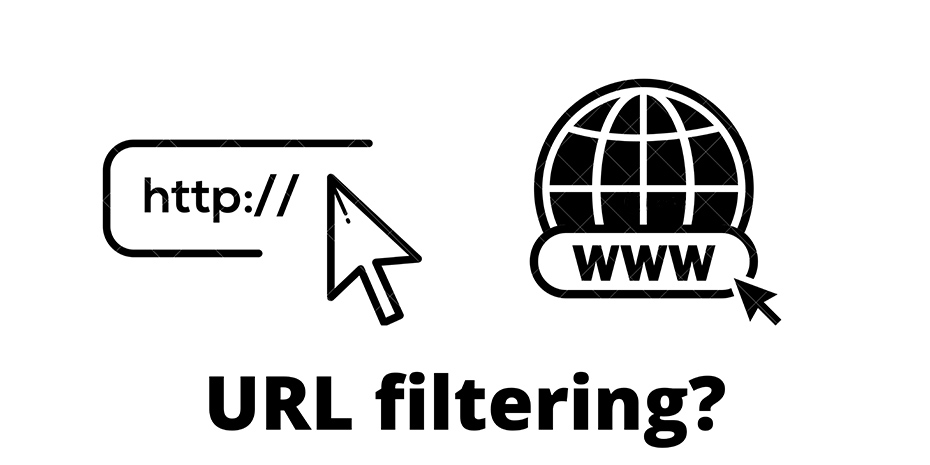Block and prevent URLs from being loaded onto your workplace network based on your preferences.
You’ve probably heard of DNS filtering, but what about broadening the definition of URL filtering? Despite their identical names and goals (to improve your cyber defences), DNS filtering and URL filtering are not the same when it comes to efficiency and security. Because it’s easier to understand with an example.
What Is URL Filtering and How Does It Work?
URL filtering will be a seven-mile step in preparing your cloud security for the challenges ahead if you approach security as a future-proofing activity. What is the significance of focusing on future challenges? Simply put, a technological shift in favour of the cloud is a worldwide trend, which means that the majority of security threats will originate in this environment.
The URL filtering function of Perimeter was designed with this concentration on incoming risks in mind; as it stands, it will enable IT and security departments (which are increasingly integrated) to limit how their employees can visit unwanted URLs.
How is this accomplished? The first step is to clearly define and categorize the sites as either allowed or prohibited. This is accomplished by managing URLs, which serve as web addresses by referring to the location of a network-based web resource you wish to access.
Given that not all websites are created equal in terms of security and general appeal, some URLs simply pose a security concern, and access to these URLs should be restricted or altogether disabled.
URL filtering is useful in this situation. Organizations can use it to prohibit URLs that they’ve hand-picked from being loaded on their network. Attempting to access filtered-out URLs by clicking on a link or manually typing in their addresses would just redirect the user to a page stating that the URLs and the content they lead to are forbidden.
What Are the Benefits of Using URL Filtering?
URLs act as backdoors to a home that is your security system in terms of (cyber) security; they can be cracked open, fully opened, closed, or secure. URLs are the channels that bad actors use to get into your network and cause havoc, depending on their trustworthiness. This is why it’s critical not to rely on your employees’ judgment when evaluating the quality of URLs they open.
You may train them all you want and put in place the most thorough security strategy in the world, but URL filtering features are the only way to gain peace of mind. Let’s face it: the vast majority of URLs aren’t required for the completion of a job, therefore feel free to restrict anything unrelated to your employee’s job.
The following are some of the advantages of using a URL filtering system:
- You get to reduce your security risk. Malware, data leaks, and other risks are examples of this.
- You can increase your productivity at work. You can avoid irritating distractions and procrastination by restricting the number of URLs your employees can interact with.
- Your compliance initiatives will also benefit. Depending on how cybersecurity is regulated in your area, strengthening your network protections may be required by law.
What is the Function of URL Filtering?
The URL filtering feature of current network traffic to what is found in a database of stored blacklisted URLs, allowing or disallowing access based on these categories.
This database is built on a URL list that you can use to categorize websites that you want to block, such as pornographic, gaming, or gambling sites. After the URLs have been added to the database, different access policies can be assigned to them. The following are the three main groups of policies:
Blocked URLs: These sites are completely blocked because they are an unwelcome distraction for your employees (such as social media platforms) because they are insecure (malware-infected sites), or because they are completely irrelevant to the work that is being done (entertainment portals).
Allowable URLs: These URLs are whitelisted and typically cover sites that are regarded as necessary for executing one’s job duties. Emails, sites related to workflows and productivity, and so on are examples.
Custom URLs that your IT and security departments consider acceptable under the condition that your employees log on and agree to have their activities monitored are examples of URLs that are conditionally approved based on the security policy.
URL Filtering Vs DNS Filtering?
Domain Name System blocking, as a form of the web filter, has certain security benefits, but it lacks the granularity of control that URL filtering provides.
The reason for this is that a DNS filter used to restrict site access is based on DNS name resolution and checking the IP address of the website. This prevents you from fine-tuning access to a site’s sub-URLs by restricting all URLs relevant to a specific IP address. Finally, this means that different pages on the same website cannot be excluded from the general blocking policy.
URL filtering, on the other hand, is used solely for a certain URL, allowing you more control over what may be accessed or blocked on a single website. Consider using the DNS filter to prevent access to Instagram – your company’s Instagram account would be barred as well, even though it may be required for the performance of everyday duties. Using URL filtering, however, your company’s Instagram profile would be viewable even if all other accounts were prohibited.
Why should your company employ URL filtering?
URL filtering tool brings precise control over what your employees can see during working hours to a whole new level. Cloud and network security will require more precision than ever before, as we increasingly rely on online resources and remote access to complete our tasks, and the watertight security that comes with it will be your first line of defence. Check out our: 5 Best URL filtering software
